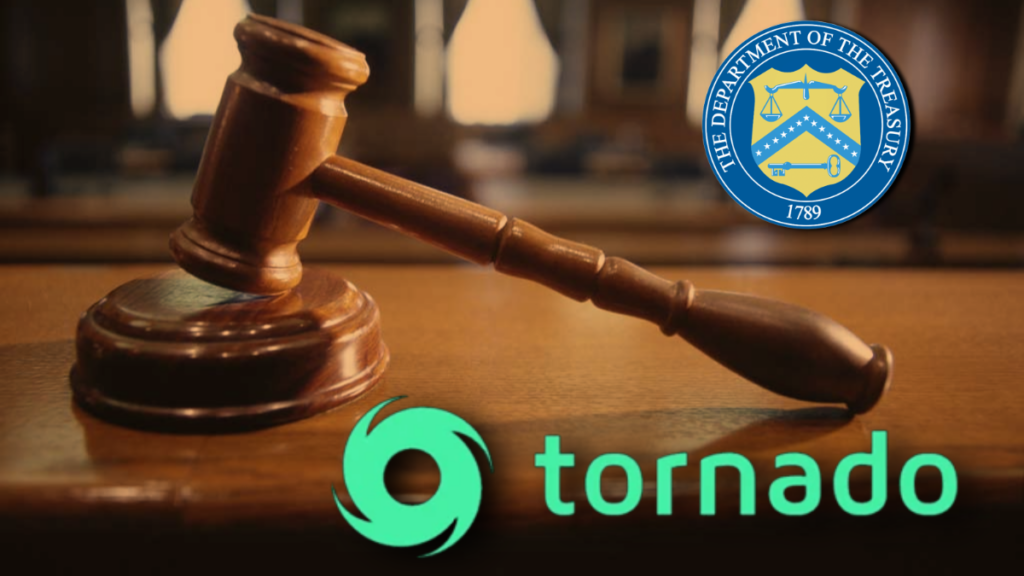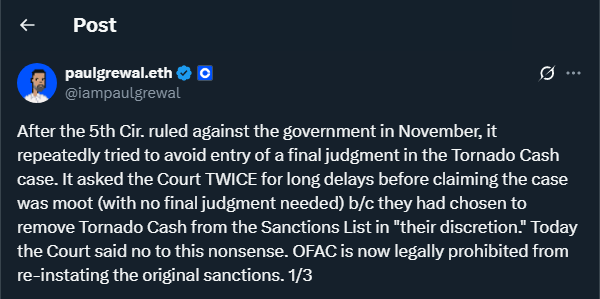TL;DR
- A federal court in Texas ruled that the U.S. Treasury cannot reimpose sanctions on Tornado Cash, reinforcing a previous Fifth Circuit decision stating that smart contracts are not sanctionable “property.”
- The court also rejected the idea that the voluntary delisting of the protocol in March rendered the case moot.
- This ruling sets a major precedent in the defense of decentralized tools and open-source code in the crypto ecosystem.
In a decision already echoing across the global crypto world, Judge Robert Pitman of the U.S. District Court for the Western District of Texas issued a permanent injunction against the U.S. Treasury and, more specifically, the “Office of Foreign Assets Control” (OFAC), prohibiting them from reimposing sanctions on the Tornado Cash mixer. The ruling reinforces a November decision by the “Fifth Circuit”, which concluded that smart contracts, being immutable and not owned by any individual, cannot be considered sanctionable property under U.S. law. In plain terms: software cannot be guilty by default or punished for being neutral.
The government had attempted to avoid a final ruling by arguing that the sanctions on Tornado Cash had been “voluntarily” lifted in March. However, the judge applied a legal precedent acknowledging the risk that a government agency might reimpose the same restrictions in the future, a strategy he deemed unacceptable. The court saw through the maneuver and issued a definitive ruling preventing OFAC from using this tactic to escape accountability. Moreover, the court emphasized the importance of safeguarding open technological development from overly aggressive interpretations by federal agencies acting without boundaries.
The Crypto Industry Cheers While OFAC Loses Ground
Since the initial ruling from the Fifth Circuit, key figures in the crypto sector such as Coinbase and privacy advocates have supported the case against OFAC, arguing that sanctioning neutral technological tools, such as open-source protocols, sets a dangerous precedent. In August 2022, OFAC accused Tornado Cash of facilitating over $7 billion in money laundering, including funds tied to North Korean hackers. However, the new court decision makes it clear that smart contracts without central control cannot be held accountable for the actions of others.

Meanwhile, the Department of Justice (DOJ) announced this month that it will stop pursuing criminal charges against crypto mixing services unless there is a clear connection to illegal activities. This signals a more targeted and less repressive approach from the government toward crypto tools.
This ruling not only strengthens the defense of code as a form of free expression, but also marks a turning point in how regulators must approach decentralized technology.











